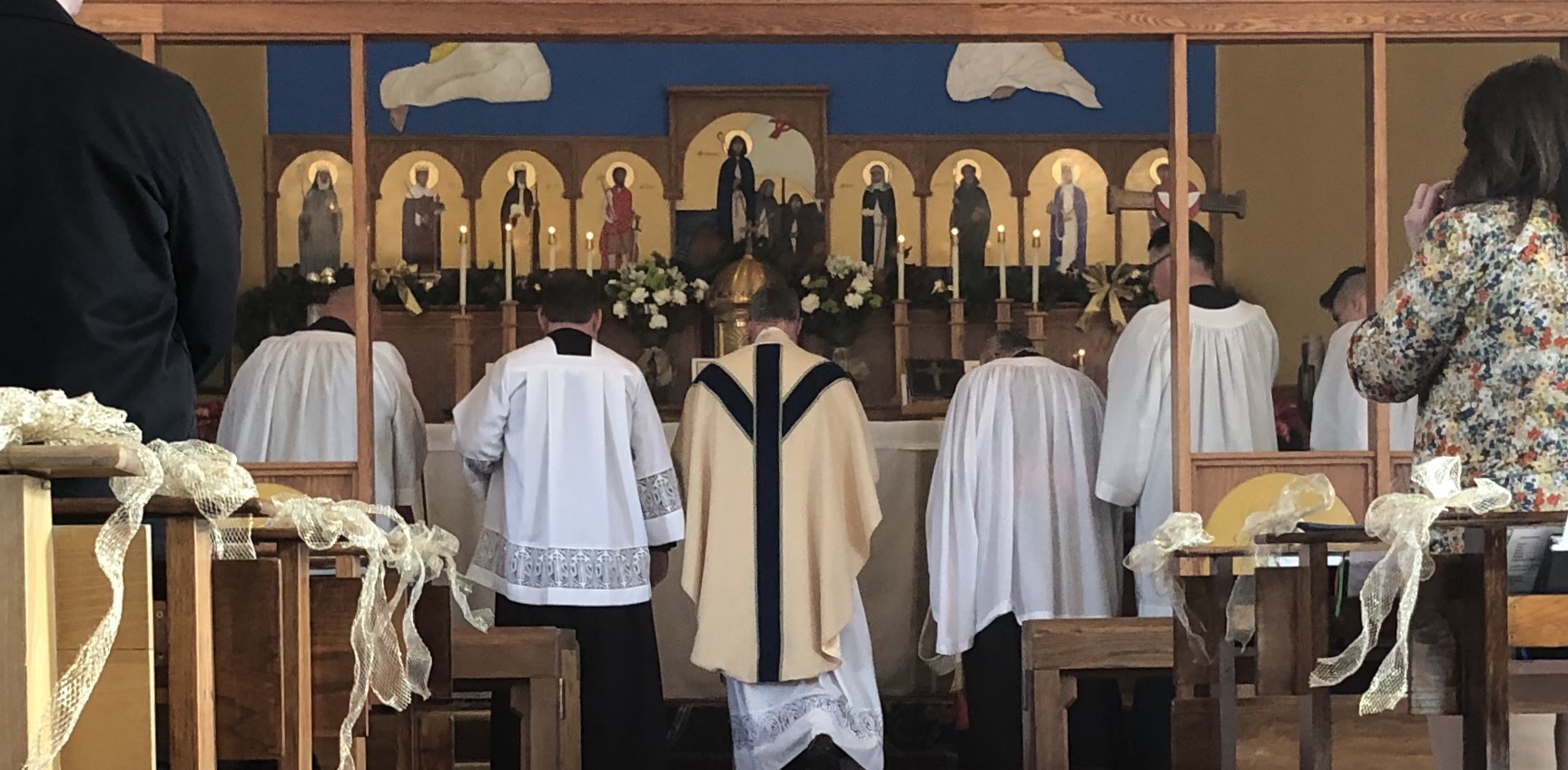Ash Wednesday shocks some people.
It shocks them, first, that we put ashes on our foreheads, for doesn’t the scripture teach, the very Gospel we read today, that when we fast, we should ‘be not, as the hypocrites, of a sad countenance: for they disfigure their faces, that they may appear unto men to fast.’
But there is fasting, and then there is fasting. There is our own personal fasting, our own personal ascesis, which we are not to trumpet abroad, that we are to do in secret, hidden save to the Lord; and then there are the public fasts of the church, such as the one we heard of in the lesson – proclaim a fast and call an assembly – a public, corporate, visible act of repentance.
Fr Andrew Louth speaks of Lent as a renewal of our Christian discipleship. But included in that is an understanding of the communal aspect of Christianity, that we are the Body of Christ, members one of another, the communion of saints.
One of the origins of Lent lies in the preparation of those getting ready to be baptized at the Paschal Vigil, when baptisms were held in the early church. And then, as they fasted and prayed, others joined in with them, to show that they were not alone, that they were joining a family, a fellowship, a community of love.
There is a phrase doing the rounds at the moment, a phrase of St John Chrysostom, ‘church and synod are synonymous.’ ‘Church and synod are synonymous.’ What is a synod? The word means, literally, caravan, caravan in the original sense of those who journey together, companions on the same road.
And this is what we are doing in Lent, journeying together as a body towards the joy of Pascha, just as we are journeying together towards the glory of the Kingdom.
The second thing that surprises some people is the formula of the administration of the ashes. Remember man that thou art dust, and to the dust thou shalt return. ‘Man’ seems to them discriminatory. But it is not man as opposed to woman, but mortal as opposed to God, man, the human creature made from clay, expelled from paradise on account of sin, destined to death, destined to become dust, the food of worms.
Except.
Except that is not our destiny. We remember now our mortality in the light of the paschal proclamation that Christ has trampled down death by death, bestowing life to those within the tomb. The reality of our sin, the reality of our death, is only the first part of our story, and the least part, because we believe in the forgiveness of sins and the resurrection of the body – those two articles of faith that go together, because death came by sin, death is the wages of sin – but the gift of God is eternal life through Jesus Christ our Lord, Jesus Who takes away our sin that He might give us Life, He Who is Himself our Life and our Resurrection.
If we celebrated our death, our mortality, our sin, how absurd that indeed that would be. But that is not what we are doing today. Today we are confessing our sins so that we might ‘see the goodness of the Lord in the land of the living.’ Today we are mortifying our flesh so that in this same flesh we may, at last, arise to glory, the glory of the Kingdom.

